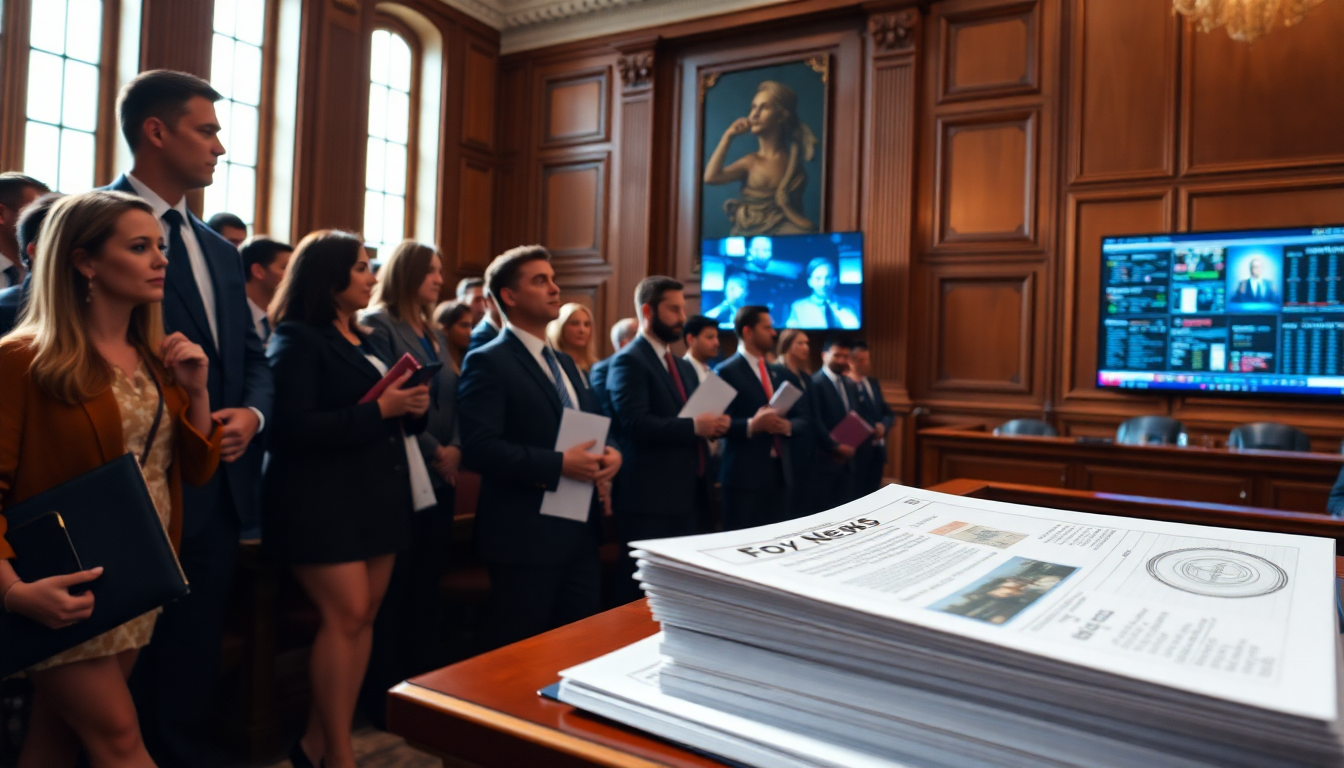Table of Contents
In a bold legal move, California Governor Gavin Newsom is taking Fox News to court, seeking an eye-popping $787 million in damages. This lawsuit, filed in Delaware Superior Court, comes on the heels of allegations that a Fox News host manipulated an edited video clip to falsely claim that Newsom lied about President Trump’s comments regarding the deployment of National Guard troops during recent protests in Los Angeles. This legal battle not only highlights the often tumultuous relationship between politicians and media outlets but also raises crucial questions about the accountability of news organizations in their reporting.
Breaking Down the Lawsuit
At the heart of Newsom’s complaint is a specific incident that unfolded on June 10, when Fox News host Jesse Watters aired edited remarks from President Trump. During the broadcast, Watters asked, “Why would Newsom lie and claim Trump never called him?” This question was posed in the context of Trump insisting they had spoken just a day earlier, a claim that Newsom quickly shot down on social media.
According to the lawsuit, Newsom insists that their last conversation actually took place on June 7, just two days before Trump ordered 2,000 California National Guard troops to Los Angeles—a move Newsom opposed. The governor backs up his claim with documentation that outlines the timeline of their communications, which counters the narrative presented by Fox News. Isn’t it fascinating how the timeline can change the entire story?
Context and Broader Implications
The staggering damages Newsom is pursuing echo the $787.5 million settlement Fox News reached with Dominion Voting Systems earlier this year. In that case, the network faced serious allegations of spreading false information about the company’s role in the 2020 presidential election. Newsom’s remarks underscore a larger conversation about accountability, stating, “If Fox News wants to lie to the American people on Donald Trump’s behalf, it should face consequences—just like it did in the Dominion case.” This sentiment reflects a growing willingness among public figures to confront media practices they view as misleading or damaging.
This lawsuit could pave the way for future cases, especially concerning the critical intersection of media reporting and political discourse. The outcome might influence how news organizations approach politically sensitive stories, particularly as the stakes for accuracy and fairness continue to escalate in our increasingly polarized climate. Are we ready for a shift in how the media operates?
Reactions and What Lies Ahead
So far, Fox News representatives haven’t responded to the lawsuit. However, the ramifications of this legal showdown stretch far beyond just the two parties involved. It has the potential to ignite important discussions about press freedom versus the media’s obligation to report truthfully, especially in an age rife with misinformation.
For Newsom, this lawsuit symbolizes more than just a financial claim; it’s a stand against what he sees as a narrative that jeopardizes his credibility and the integrity of his office. Will this legal action lead to a landmark ruling on media conduct? Only time will tell, but it certainly shines a light on the ongoing friction between political leaders and the media landscape. How do you see this playing out in the future?


